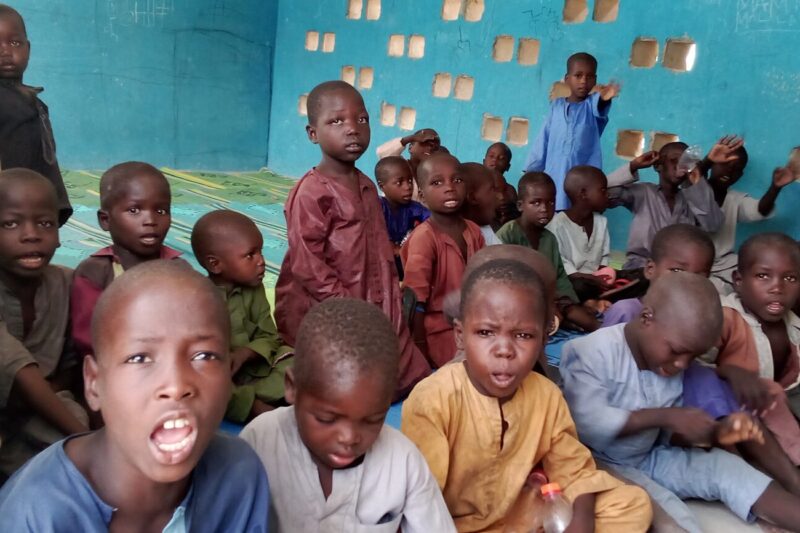For internally displaced persons in the northeast of the country, getting an education is virtually impossible and remains a pipe dream for most.
The area has been historically marginalised and the ever-increasing conflict with and attacks by extremist groups – particularly the Jamā’at Ahl as-Sunnah lid-Da’way Wa’l-Jihād (JAS), commonly known as Boko Haram, and the Islamic State West Africa Province (ISWAP) – have had a devastating effect on the lives of individuals in the area.
The deliberate targeting of schools, teachers, pupils and students has eroded an already fragile education system.
Many schools were forced to close. Classrooms and equipment were destroyed. Some burnt-out schools stand as empty shells.
Teachers, lecturers, pupils and students were – and are continuing to be – kidnapped or abducted. Many have been killed.
And, added to this, most internally displace persons live in extreme poverty and parents and guardians simply cannot afford to send their children to school or, if they do, there is a high dropout rate because of the lack of funds.
Umara Muhammad, an internally displaced person from Guzamala who lives in Bakassi camp, told RNI reporter Fatima Grema Modu that he finished secondary school in 2019 but he wasn’t able to further his education because he did not have money to buy even the form to register for higher learning.
“I lost my parents. We are many [children]. We have no one to look after us or support us financially. Many of my friends have finished secondary school in this camp but we cannot even talk about going to university or a higher education facility because we don’t have money to sponsor ourselves nor do we have someone to support us and there’s no assistance from the government.”
He said he was happy for those of his friends who could afford to go to university but, at this stage, higher learning was just a dream that in all probability would not come true.
Zainab Ibrahim, an internally displaced person from the Damboa Local Government Area in Borno State who also lives at the Bakassi camp, said her greatest wish was to become a medical doctor so that she could be of help to her people, especially women, but she was poor and her parents could not sponsor her because they were indigent.
She said although she completed secondary school, she had no plans to marry any time soon. She would not be able to cope with marriage and school at the same time. Her greatest desire was to complete her degree before she even thought about getting married.
Amina Babbagana, an internally displaced person from Bama, said she had finished secondary school and wanted to further her education but did not have the money to do so.
“I wish the government would sponsor young people so that we can achieve our goals in life. If I could go further with my studies, it would help me to get out of the rut of being a displaced person. The government needs to help young people by offering and awarding scholarships so that we can make our dreams come true.”
The United Nations International Children’s Emergency Fund said in a recent report that one in every five of the world’s out-of-school children were in Nigeria.
It said getting out-of-school children back into education posed a massive challenge, particularly in the north of the country.







